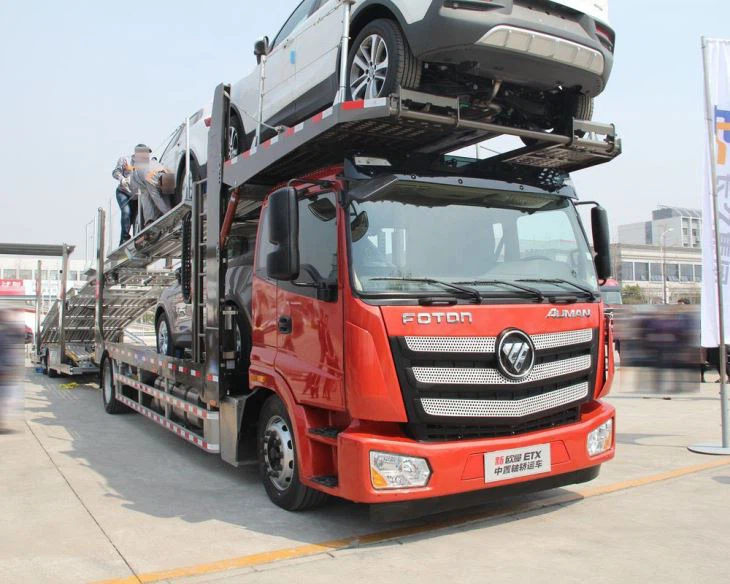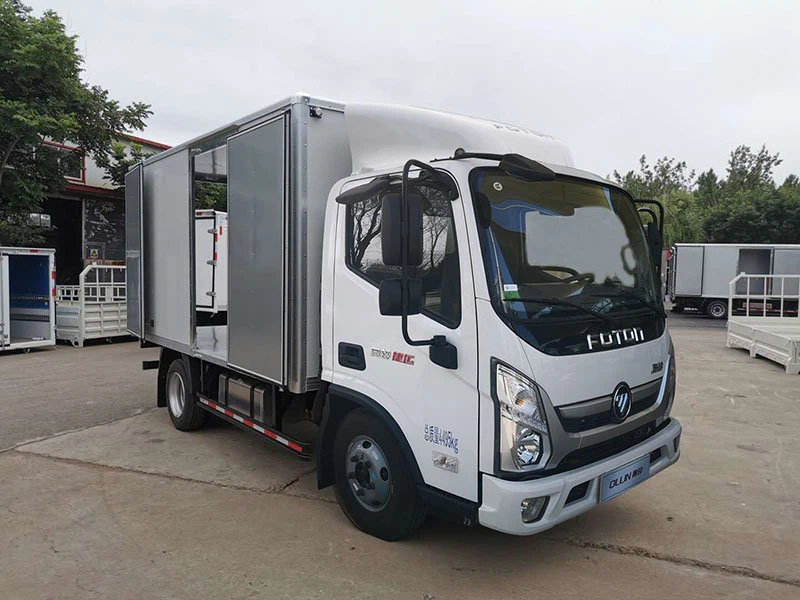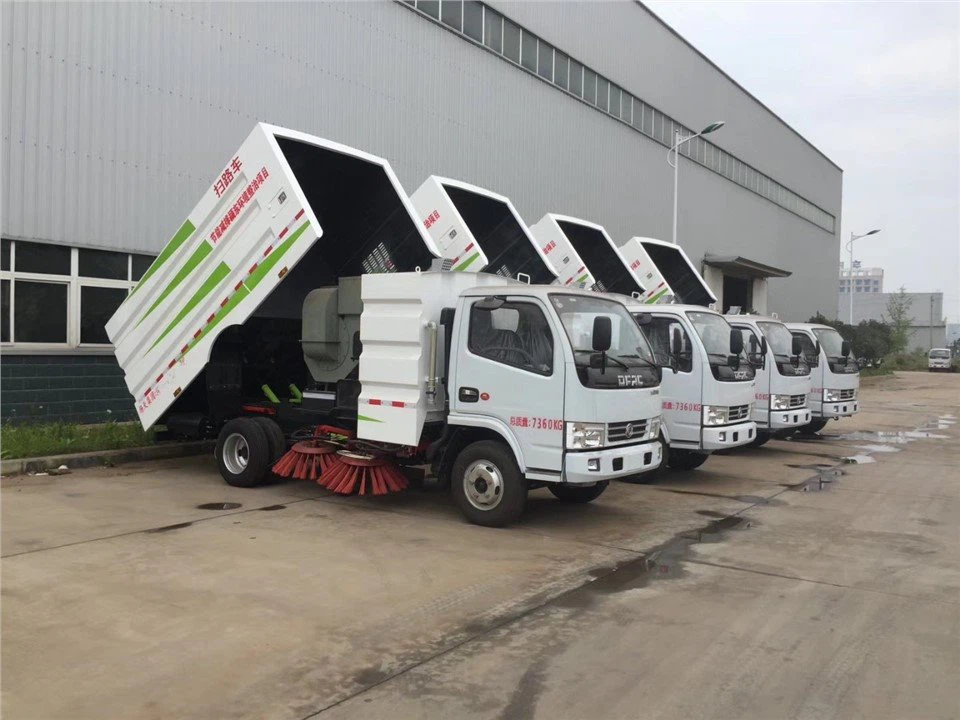Understanding Roll Off Trucks: A Complete Guide

Introduction
Roll off trucks are becoming increasingly popular in the construction and waste management industries due to their efficiency and versatility. These trucks are designed to transport and dispose of heavy materials, making them a crucial asset for businesses that deal with debris, recycling, and construction waste. In this comprehensive guide, we will delve into the anatomy of roll off trucks, their benefits, operational guidelines, and various applications. Whether you are a business owner, contractor, or simply curious, this article will provide valuable insights into roll off trucks.
What is a Roll Off Truck?
Defining Roll Off Trucks

A roll off truck is a specialized vehicle that can transport roll off containers. These containers, often made from metal, come in various sizes and are designed to hold a wide range of materials such as construction debris, recyclables, and waste.
Key Components of a Roll Off Truck
To understand how roll off trucks function, it’s essential to know their main components:
- Truck Frame: The base structure that supports the container.
- Roll-Off Mechanism: A hydraulic system that allows the container to be loaded and unloaded effortlessly.
- Container: The actual bin used for transporting waste or materials.
Types of Roll Off Trucks
Roll off trucks come in various types based on their specific usage and design.
Standard Roll Off Trucks
These trucks are commonly used in waste management and construction sites. They have the capacity to haul containers ranging from 10 to 40 cubic yards.
Heavy-Duty Roll Off Trucks
Heavy-duty roll off trucks are built for transporting larger and heavier loads. They are typically used in industrial environments requiring robust machinery.
Hydraulic Roll Off Trucks
Equipped with advanced hydraulic systems, these trucks provide smoother operation and increased efficiency when loading or unloading containers.
Benefits of Using Roll Off Trucks
Roll off trucks offer numerous advantages for businesses and contractors. Here are some significant benefits:
Efficiency in Handling Waste
Roll off trucks simplify waste disposal by allowing containers to be filled at job sites and transported without multiple trips.
Cost-Effective Solutions
Using roll off trucks can lower disposal costs by maximizing container utilization and minimizing labor requirements.
Environmental Impact
By facilitating recycling and proper waste disposal, roll off trucks contribute to sustainable practices in construction and waste management.
Applications of Roll Off Trucks
Roll off trucks are utilized in various sectors, showcasing their versatility.
Construction Industry
In construction, roll off trucks play a pivotal role in transporting debris, scrap, and materials from job sites to disposal facilities.

Landscaping
Landscaping companies utilize roll off trucks for transporting soil, mulch, and other materials needed for projects.
Residential Cleanouts
Homeowners often rent roll off containers to declutter during renovations or moving, enabling easy disposal of unwanted items.
How to Choose the Right Roll Off Truck
Selecting a roll off truck depends on several factors.
Container Size
Consider the size of the container you will need for your project. The common sizes range from 10 to 40 cubic yards.
Weight Capacity
Ensure the truck can accommodate the weight of the materials you intend to transport. Heavy materials may require heavy-duty trucks.
Type of Material
Certain materials may require specific types of roll off containers. Verify that the truck and container chosen are suitable for your materials.
Operating a Roll Off Truck
Proper operation of a roll off truck is crucial for safety and efficiency.
Pre-Operation Checks
Before each use, operators should conduct a thorough inspection of the truck, including brakes, tires, and hydraulic systems.
Loading and Unloading Procedures
Always follow proper loading techniques to prevent accidents and ensure stability. When unloading, position the truck on flat ground and utilize the hydraulic system carefully.
Safety Considerations
Operators should wear appropriate safety gear and follow all safety protocols to minimize risks during operation.
Maintenance of Roll Off Trucks
Regular maintenance is essential to ensure the longevity and efficiency of roll off trucks.
Routine Inspections
Schedule regular inspections to detect potential issues early, including checking fluid levels and brake functionality.
Hydraulic System Maintenance
Maintain the hydraulic system by checking hoses for leaks and ensuring all connections are secure.
Cleaning the Truck
Regularly clean both the truck and containers to prevent build-up of debris and ensure smooth operation.
Case Studies: Successful Use of Roll Off Trucks
To illustrate the effectiveness of roll off trucks, here are some real-world examples:
Case Study 1: Citywide Construction Project
A city construction project utilized roll off trucks to manage the disposal of debris efficiently. By using 20-yard containers, the project minimized delays and maintained a clean work environment.
Case Study 2: Residential Renovation
A homeowner embarking on a large renovation found that renting a roll off container streamlined the process of waste disposal. They easily filled the container over several weeks, resulting in significant cost savings.
FAQs about Roll Off Trucks

1. What size roll off container do I need?
The size of the container you need depends on the amount and type of materials you’ll be disposing of. Common sizes are 10, 20, 30, and 40 cubic yards.
2. How much weight can a roll off truck carry?
The weight capacity varies by truck type, but most roll off trucks can safely transport between 10 to 20 tons, depending on the specifications.
3. Can I rent a roll off container for residential use?
Yes, many companies offer roll off container rentals for residential cleaning projects or renovations.
4. How long can I keep a roll off container?
Rental durations can vary by provider, but typically you can keep a container for several days to weeks, depending on your needs.
5. Are roll off containers suitable for recycling materials?
Yes, roll off containers are often used for recycling—just ensure to specify the type of materials you’re disposing of when renting.
6. What should I avoid placing in a roll off container?
Avoid placing hazardous materials like chemicals, oils, batteries, and electronics in roll off containers. Always check with the rental provider for specific restrictions.
